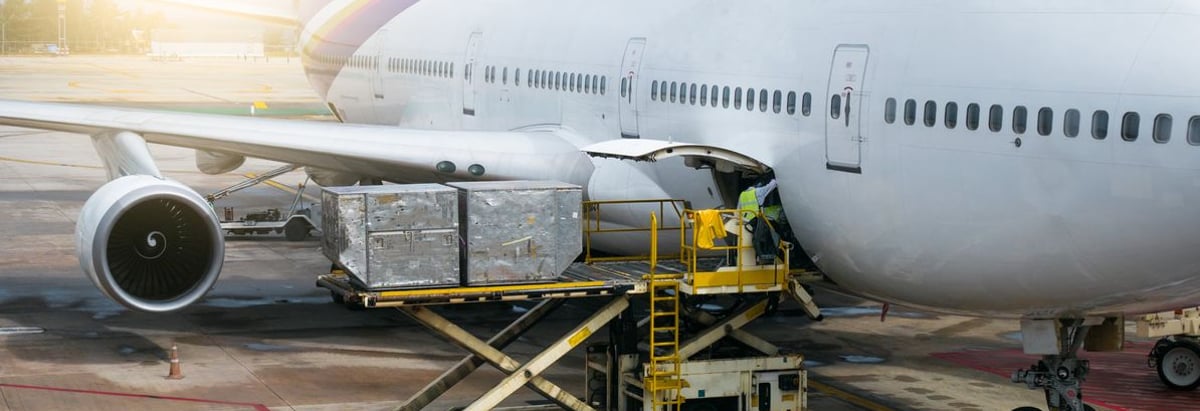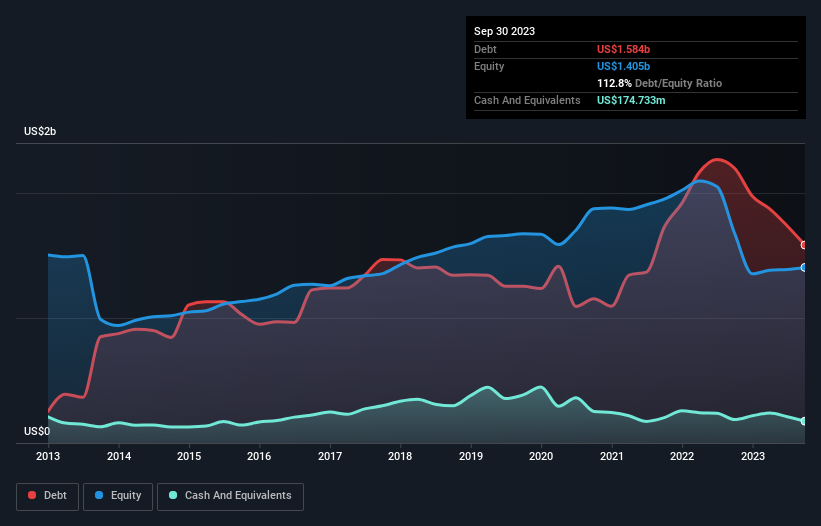
Legendary fund manager Li Lu (who Charlie Munger backed) once said, 'The biggest investment risk is not the volatility of prices, but whether you will suffer a permanent loss of capital.' When we think about how risky a company is, we always like to look at its use of debt, since debt overload can lead to ruin. Importantly, C.H. Robinson Worldwide, Inc. (NASDAQ:CHRW) does carry debt. But the more important question is: how much risk is that debt creating?
When Is Debt Dangerous?
Generally speaking, debt only becomes a real problem when a company can't easily pay it off, either by raising capital or with its own cash flow. In the worst case scenario, a company can go bankrupt if it cannot pay its creditors. While that is not too common, we often do see indebted companies permanently diluting shareholders because lenders force them to raise capital at a distressed price. Of course, debt can be an important tool in businesses, particularly capital heavy businesses. When we examine debt levels, we first consider both cash and debt levels, together.
See our latest analysis for C.H. Robinson Worldwide
What Is C.H. Robinson Worldwide's Debt?
As you can see below, C.H. Robinson Worldwide had US$1.58b of debt at September 2023, down from US$2.20b a year prior. However, it does have US$174.7m in cash offsetting this, leading to net debt of about US$1.41b.

How Strong Is C.H. Robinson Worldwide's Balance Sheet?
According to the last reported balance sheet, C.H. Robinson Worldwide had liabilities of US$2.65b due within 12 months, and liabilities of US$1.26b due beyond 12 months. Offsetting these obligations, it had cash of US$174.7m as well as receivables valued at US$2.65b due within 12 months. So it has liabilities totalling US$1.09b more than its cash and near-term receivables, combined.
Of course, C.H. Robinson Worldwide has a market capitalization of US$9.85b, so these liabilities are probably manageable. But there are sufficient liabilities that we would certainly recommend shareholders continue to monitor the balance sheet, going forward.
In order to size up a company's debt relative to its earnings, we calculate its net debt divided by its earnings before interest, tax, depreciation, and amortization (EBITDA) and its earnings before interest and tax (EBIT) divided by its interest expense (its interest cover). Thus we consider debt relative to earnings both with and without depreciation and amortization expenses.
C.H. Robinson Worldwide's net debt is sitting at a very reasonable 2.0 times its EBITDA, while its EBIT covered its interest expense just 6.6 times last year. While that doesn't worry us too much, it does suggest the interest payments are somewhat of a burden. Importantly, C.H. Robinson Worldwide's EBIT fell a jaw-dropping 55% in the last twelve months. If that decline continues then paying off debt will be harder than selling foie gras at a vegan convention. The balance sheet is clearly the area to focus on when you are analysing debt. But it is future earnings, more than anything, that will determine C.H. Robinson Worldwide's ability to maintain a healthy balance sheet going forward. So if you want to see what the professionals think, you might find this free report on analyst profit forecasts to be interesting.
Finally, a company can only pay off debt with cold hard cash, not accounting profits. So it's worth checking how much of that EBIT is backed by free cash flow. Over the most recent three years, C.H. Robinson Worldwide recorded free cash flow worth 77% of its EBIT, which is around normal, given free cash flow excludes interest and tax. This free cash flow puts the company in a good position to pay down debt, when appropriate.
Our View
Based on what we've seen C.H. Robinson Worldwide is not finding it easy, given its EBIT growth rate, but the other factors we considered give us cause to be optimistic. In particular, we are dazzled with its conversion of EBIT to free cash flow. When we consider all the factors mentioned above, we do feel a bit cautious about C.H. Robinson Worldwide's use of debt. While debt does have its upside in higher potential returns, we think shareholders should definitely consider how debt levels might make the stock more risky. There's no doubt that we learn most about debt from the balance sheet. However, not all investment risk resides within the balance sheet - far from it. For example, we've discovered 2 warning signs for C.H. Robinson Worldwide that you should be aware of before investing here.
Of course, if you're the type of investor who prefers buying stocks without the burden of debt, then don't hesitate to discover our exclusive list of net cash growth stocks, today.
New: AI Stock Screener & Alerts
Our new AI Stock Screener scans the market every day to uncover opportunities.
• Dividend Powerhouses (3%+ Yield)
• Undervalued Small Caps with Insider Buying
• High growth Tech and AI Companies
Or build your own from over 50 metrics.
Have feedback on this article? Concerned about the content? Get in touch with us directly. Alternatively, email editorial-team (at) simplywallst.com.
This article by Simply Wall St is general in nature. We provide commentary based on historical data and analyst forecasts only using an unbiased methodology and our articles are not intended to be financial advice. It does not constitute a recommendation to buy or sell any stock, and does not take account of your objectives, or your financial situation. We aim to bring you long-term focused analysis driven by fundamental data. Note that our analysis may not factor in the latest price-sensitive company announcements or qualitative material. Simply Wall St has no position in any stocks mentioned.
About NasdaqGS:CHRW
C.H. Robinson Worldwide
Provides freight transportation services, and related logistics and supply chain services in the United States and internationally.
Average dividend payer with moderate growth potential.


